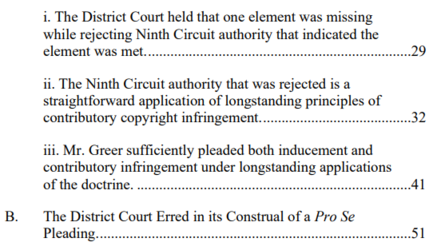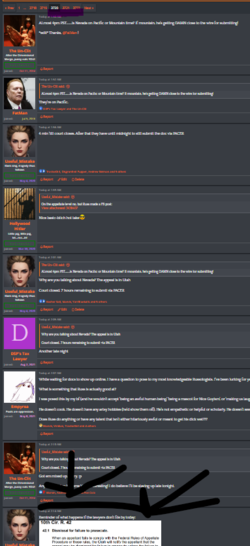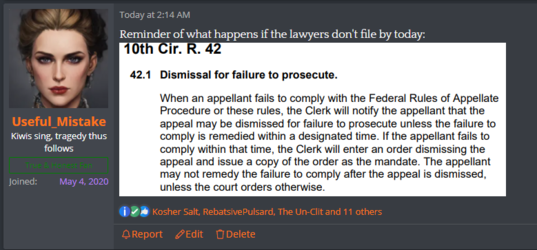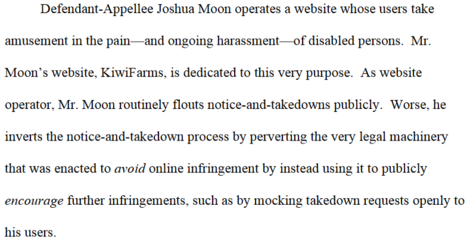
1. Posting DMCA notices does not mean Null encourages copyright infringement. This is conclusion, unsupported by evidence, and should be disregarded. See, for example, Khalik v. United Air Lines, 671 F.3d 1188, 1191 (10th Cir. 2012)
2. We are not harassing Russ. Harassing requires initiated and maintained contact (for improper purposes such as intimidation), something we have not done. See, for example 76-5-106 and/or 76-9-201 of Utah criminal code. I will not address any more claims of harassment as they are all likely as frivolous.

The problem is, of course, that no one can point to a single line by Null, in context or outside, that would show encouragement of infringement, and as I have shown when Russ raised it, Null has on many times made it clear that we are to not use his site for infringement purposes or to commit other unlawful activity.
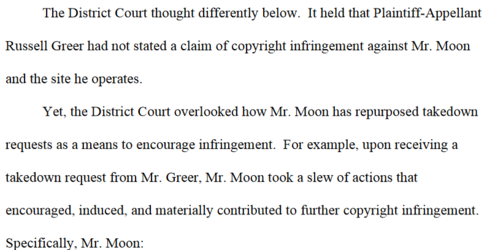
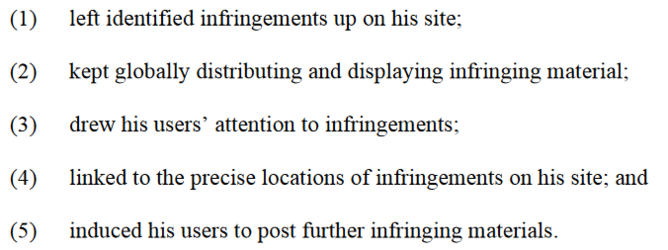
That's an interesting take, and possibly a new one. One problem remains, though, that contributory infringement requires "active steps to encourage infringement...such as advertising an infringing use or instructing how to engage in an infringing use", or "entices or persuades another to infringe" See Metro-Goldwyn-Mayer Studios Inc. v. Grokster, Ltd., 545 U.S. 913(2005)
Null has never taken active steps to encourage any sort of infringement. Besides, for contributory infringement to apply it is not enough for Null to have merely left the content to remain on the site, he must have taken active steps to encourage infringement. Again, see
Grokster.

That's a nonsensical take on both DMCA and Contributory Copyright infringement, This is also a new argument one not presented to the district court, something which cannot be raised on appeal. See Greer v. Herbert, No. 18-4075 (10th Cir. Apr. 9, 2019) (“we generally do not consider matters not first presented to the district court.”), McDonald v. Kinder-Morgan, Inc., 287 F.3d 992 (10th Cir. 2002) (“It is clear in this circuit that absent extraordinary circumstances, we will not consider arguments raised for the first time on appeal.”).

I love how this is something that ended up as a point on appeal.

He did not. Russ could not point to even a single quote by Null encouraging, inducing, or contributing to the infringement.
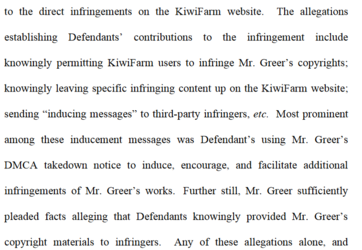
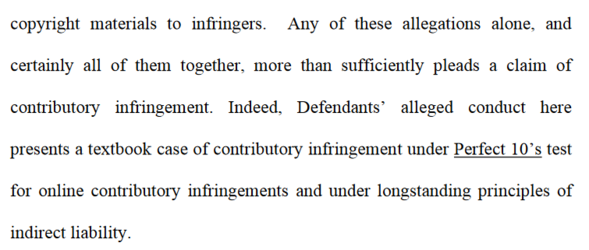
1. Not a single one of these things appeared on the district level. It's very telling that they have no citation to the record on where any of this could be found.
2. 10th circuit is not bound by the opinions of the 9th. See Jordan v. Sosa, 654 F.3d 1012 (10th Cir. 2011) ("We have rejected the notion that we are bound by opinions handed down in other circuits"), United States v. Marquez, 17-2028 (10th Cir. 201

("this court isn’t bound by opinions handed down in other circuits"), EEOC v. CR England, Inc., 644 F.3d 1028 (10th Cir. 2011) ("it is an unpublished, out-of-circuit case that accordingly has no precedential value"), Elwell v. Byers, 11-3172 (10th Cir. 2012) ("we think it quite evident that a single case from an out-of-circuit district court cannot clearly establish the law in the Tenth Circuit")


Again, 10th circuit needn't obey the 9th. See, again, Jordan v. Sosa.

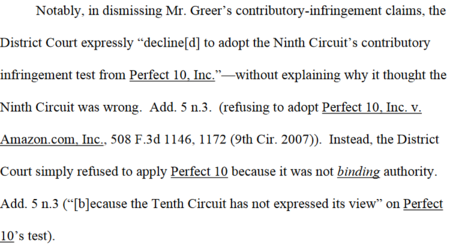
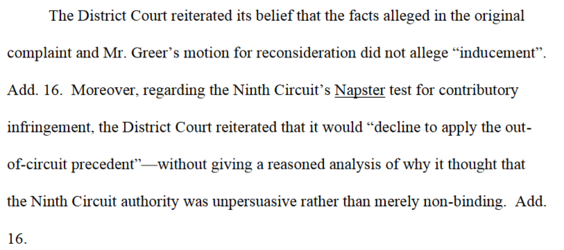
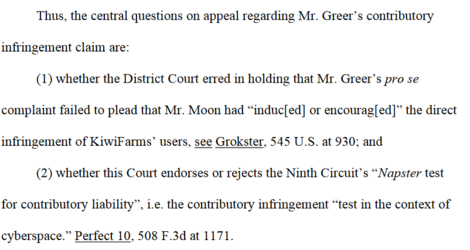
This entire argument rests on a citation the court didn't have to obey. The citation had no power over the Utah court, and it declined to apply the standards of 9th circuit to the 10th. This argument they are making is a weak one.

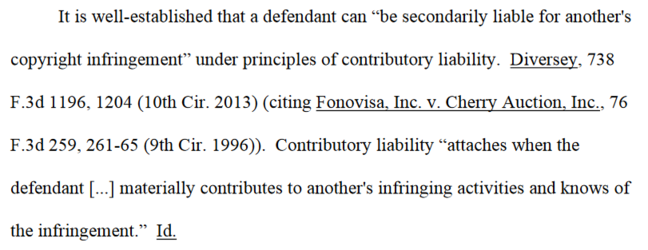
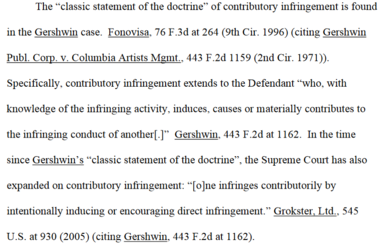
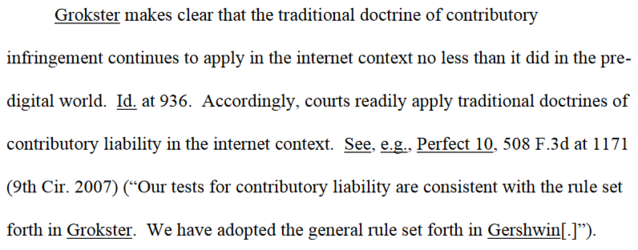

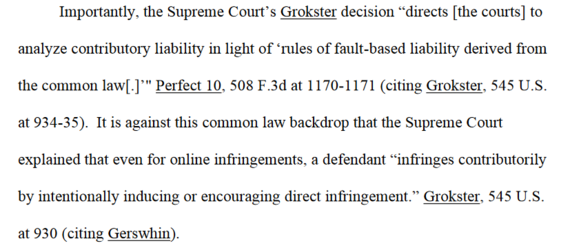
Citing many out-of-circuit decisions, Russ' lawyers accidentally explain why Null was in the right and Russ lost.

The problem remains that Null neither intended nor comitted any contributory infringement.
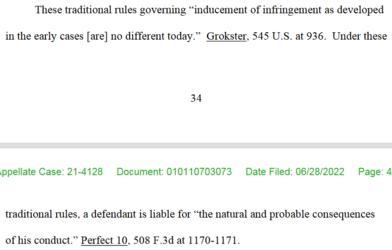
Note, however, how much they rely on that one decision the district court refused to consider. Decision that seemingly goes far further than the applicable doctrine of
Grokster.
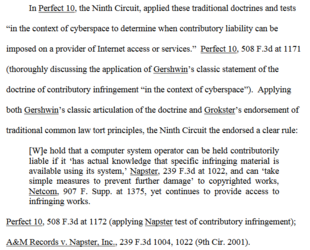
This is exactly why the district court refused to consider that decision. Not only does it creates a new test, it also completely rewrites the requirements set out in
Grokster.

No.

Note, again, how they keep citing that one case that has zero authority in this circuit.

Weird how neither one of these cases says that and how one of them is an old 2nd circuit case (which says the exact opposite)
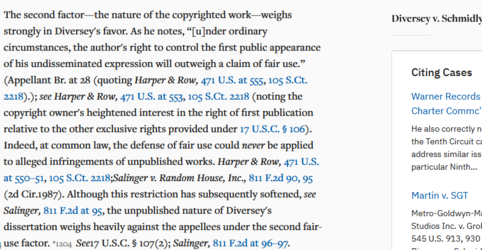
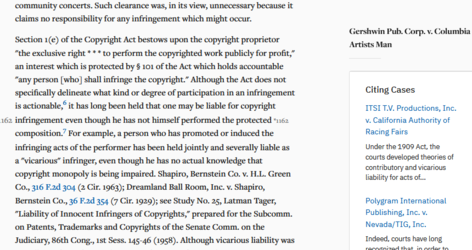
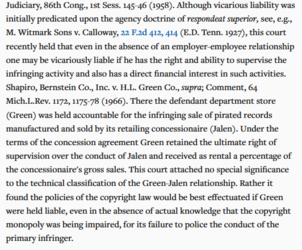


It did, though, and al your citations show that.

Nigger, what the fuck are you on about? Grokster specifically was talking about "contributory or vicarious infringement" in that case, not creating this "cyberspace test"

What's worse is that in the next paragraph they agree that they are streching as that is not what SCOTUS said:

We've reached such a point that after running out of all other arguments they resorted to quoting authors and congressmen:
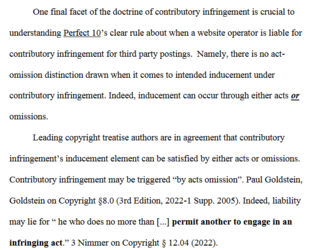
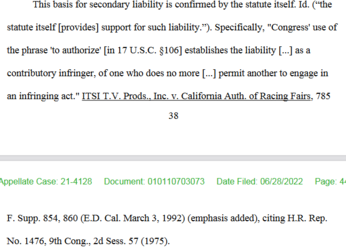
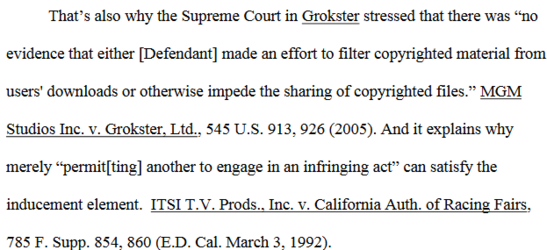
California's district court is not binding on this circuit.
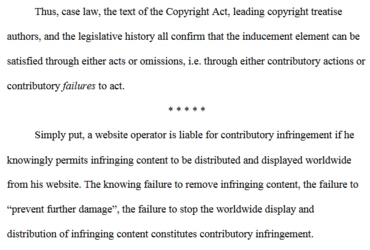
While that may be true in the 9th circuit, it is not here.
Reminder, all these are completely new arguments they aren't allowed to bring up. Greer argued that he showed Null encouraging infringement, Russ' lawyers instead argue that one of the prongs of the contibutory infringement test doesn't actually exist which is completely new argument not raised in the district court.
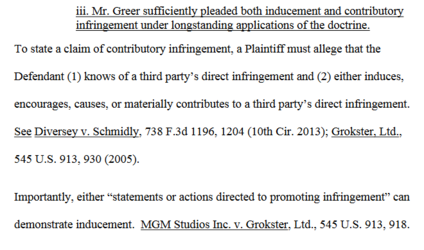
That is true, and Russ failed to prove it.
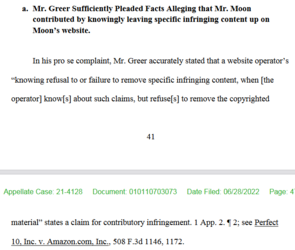

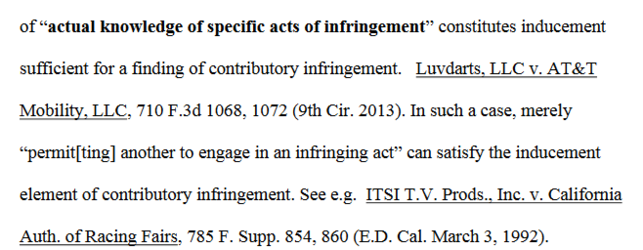
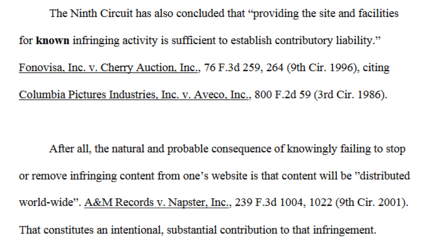
Again, 9th circuit is non-binding.
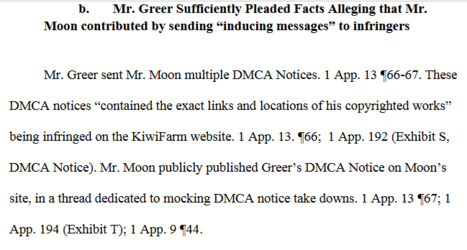


That is not "sending inducing messages", and mockery of DMCA notice has never in any court been held to be contributory infringement, nor an "inducing message".

That's wrong. in Grokster they found "classic instance of inducement" to be an add that specifically encouraged and promoted in clear words the ability to steal songs. This is completely different:
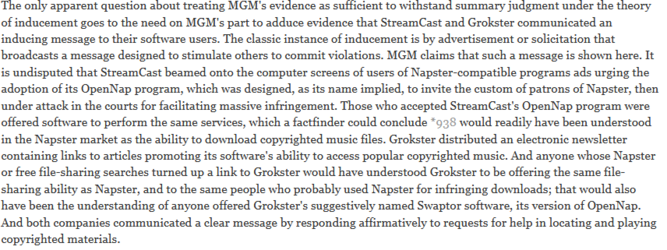
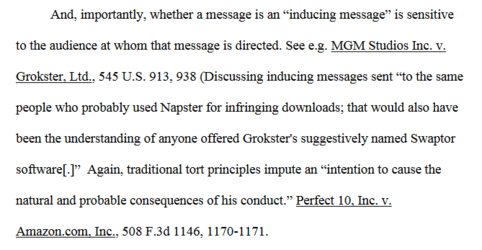
One is the early version of Piratebay. The other is a website to mock autists. Our audiences are completely different,
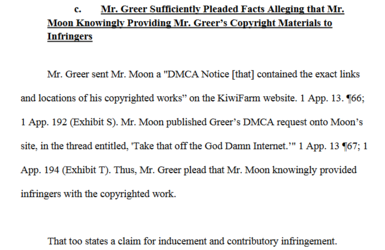
He took no active steps to provide them with the copyrighted material. It was already (allegedly) on the website. The DMCA was written by Russ, and if links were infringement (your baby Perfect 10 says it is not) then it'd be Russ at fault, not Null.
And besides, linking something is not encouraging them to infringe.
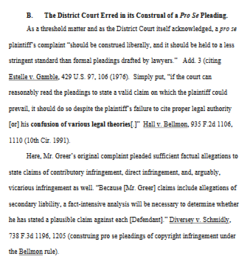
1. "Once judgment is entered, the filing of an amended complaint is not permissible until judgment is set aside or vacated" See Seymour v. Thornton, 79 F.3d 980 (10th Cir. 1996)
2. "A proposed amendment is futile if the complaint, as amended, would be subject to dismissal for any reason, including that the amendment would not survive a motion for summary judgment." See
Watson ex Rel. Watson v. Beckel, 242 F.3d 1237 (10th Cir. 2001)
3. Diversey is non-binding as a 2nd circuit case

Ditto.

Wrong. The Court should affirm.


